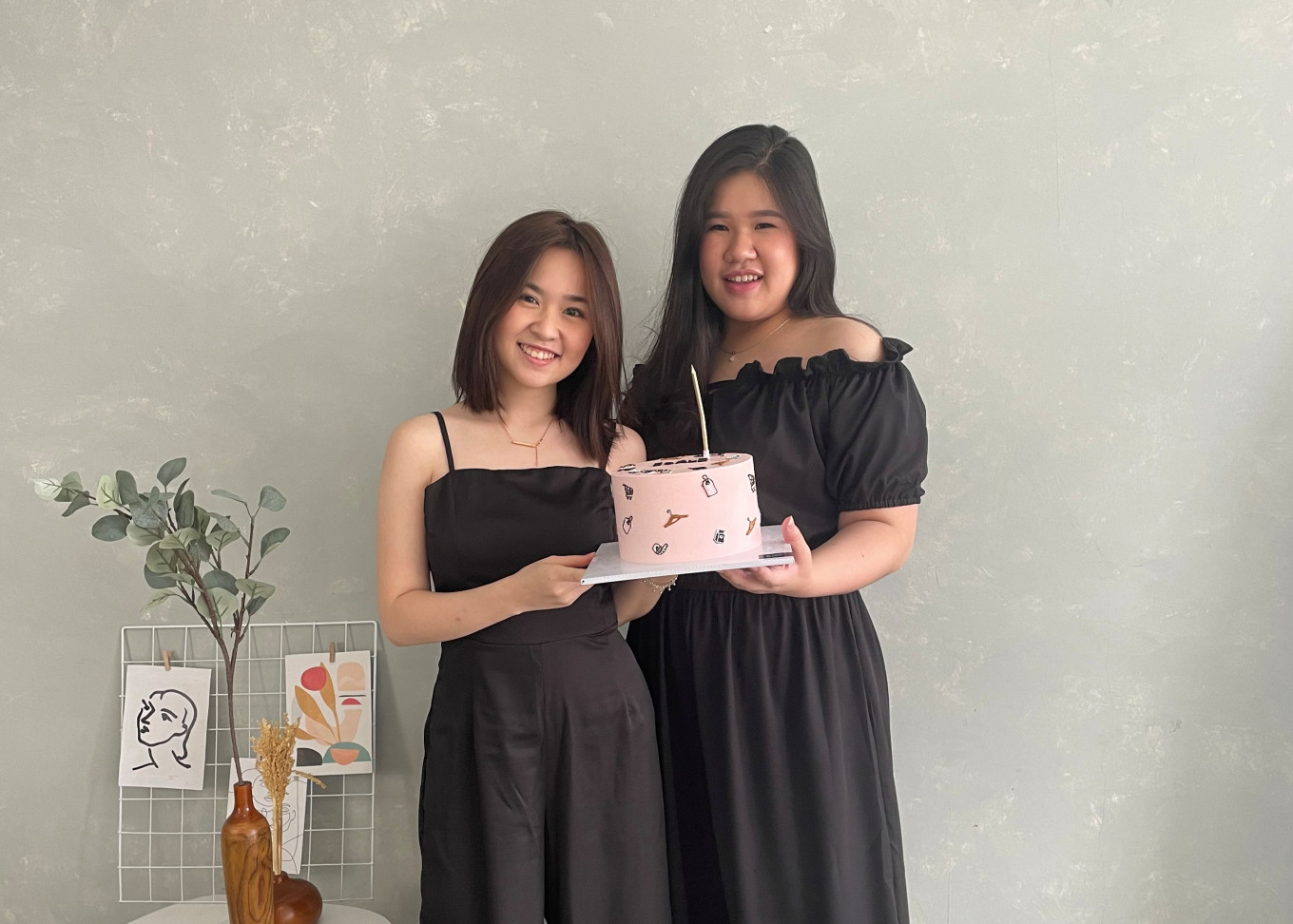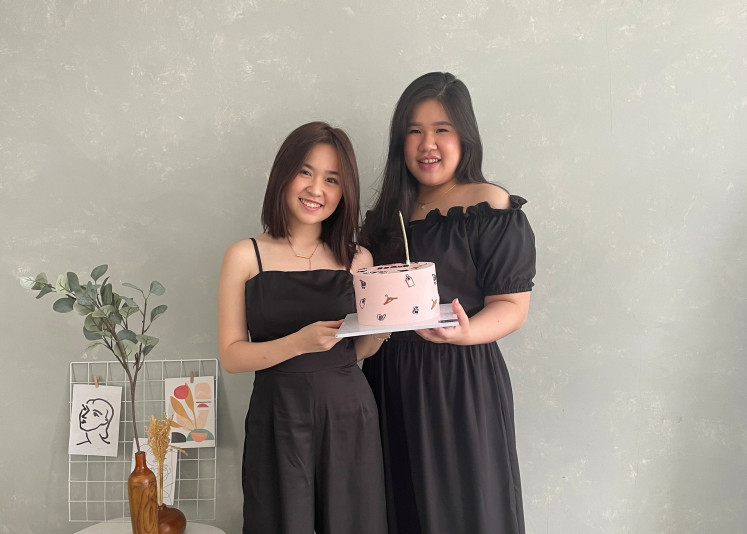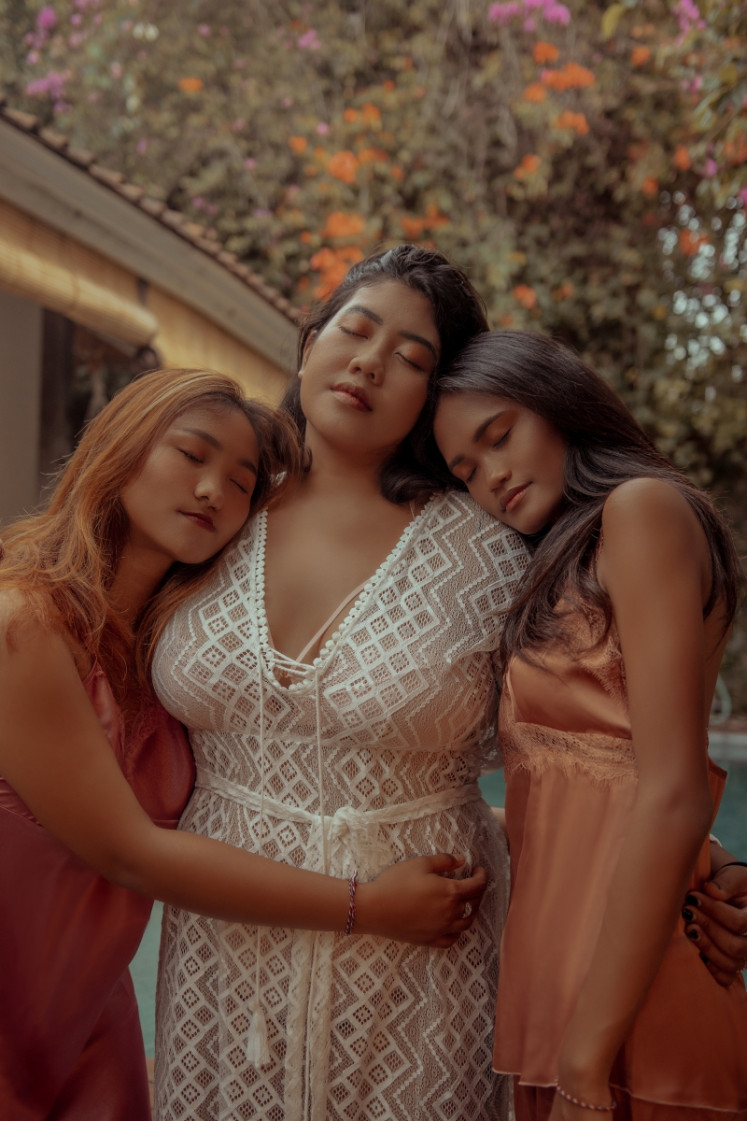Popular Reads
Top Results
Can't find what you're looking for?
View all search resultsPopular Reads
Top Results
Can't find what you're looking for?
View all search resultsFeel good, look good: Local fashion brands promote self-love, body positivity
Diversity is inclusiveness, as these Indonesian brands are demonstrating by catering to plus size customers, who often have a hard time finding attractive clothing that fit them amid the prevailing “beauty ideal” stereotype.
Change text size
Gift Premium Articles
to Anyone
P
lus size fashion for women has been around for a while, but unlike international brands, locally made and affordable fashion for this niche market is often seen as old-fashioned or untrendy. It leaves women with so-called nonnormative bodies feeling even more uneasy about themselves and their appearance.
The rise of social media in recent years, especially TikTok and Instagram, has allowed people to be more open and positive in expressing themselves. Body positivity campaigns are run frequently, both on- and offline, readdressing beauty ideals and promoting self-acceptance regardless of body size and skin color, even race.
Monomolly (@monomolly.id), a local brand CEO founder Monica Amadea started in 2016, went viral on TikTok last year after the brand created various sizes of colorful pants for women. Monic said that like most online fashion brands, Monomolly started by selling only free size or all-size clothing.
“However, as we gained more followers and the brand gained more recognition, we kept getting requests to create products that accommodated plus size women,” she said.
For a brand to produce clothing beyond free size is a risk. In addition to increased production costs, brands must take into account the possibility of lower sales for plus size clothing compared to regular sizes, which also means surplus stock and extra storage space.
“To be honest, when we decided to create [a various range of] sizes, I wasn’t sure, since it can be costly. But when we finally introduced them to the market, we received such great response and sold tens of thousands of pieces,” said Monica.
Egale clothing founders Regina Vania and Stefanny Kurniawan wants to use theor clothing line to encourage women of all sizes to be comfortable in their own skin. (Egale/Courtesy of Egale)Zulfa Fajriya, a 26-year-old working mother, regularly buys Monomolly clothing. She says she used to find it difficult to express herself through fashion because of her plus size figure.
“I haven’t seen many fashion brands that accommodate plus size women like me, [offering] pretty and trendy pieces, so when I finally found a brand in the market that did, I felt so happy, like winning the lottery,” said Zulfa.
For her, fashion was not just clothes, but a way to express herself and show who she is.
“These pretty pieces make me feel more like myself. I feel a lot more comfortable. Even people started to notice and started giving me compliments,” she said.
Real people, real bodies
Nipplets (@nipplets_official) is another local brand that promotes body positivity, through its “Real People Real Body’” campaign. Ida Swasti founded the brand in 2016, initially promoting its lingerie and sleepwear using foreign models.
But Ida had her own insecurities with body image. “I was so insecure of being flat-chested. However, one day I decided to try and share my thoughts about my products on Instagram,” she said.
The response she received was unexpected and overwhelmingly positive. “People asked me how I could be so confident and all, so it actually kind of helped me, too.”
Before launching the “Real People Real Body” campaign in early 2019, Ida said she had to first be comfortable in her own skin and accepting of herself.
“You know, when I finally felt comfortable in my own body, was more positive and didn’t care too much about what others said, I felt like I could finally start sharing this energy with others,” said Ida, whose number one rule for lingerie is: “love yourself and be happy in it”.
“Sometimes women wear [lingerie] for others. But if you have that in mind, and let’s say that they don’t like you in it, you’re just going to be more insecure about yourself. You have to love wearing it so that when others do, it simply becomes a bonus,” she advised.
Founder Citra Benazir of nonprofit organization Tis The Lyfe, who also wrote Pleasure Girls, a novel about womanhood, actively promotes self-love on her Instagram account and two podcasts, including one inspired by and named after her book. She often buys products from Nipplets.
Models posing for Nipplets, which makes clothing for women of various sizes. (Nipplets /Courtesy of Nipplets)“I am glad that Nipplets exists, because as someone who has never been very comfortable in her own skin or body throughout her own journey of womanhood, inclusive sizes in lingerie have been very helpful in expressing and exploring another layer of myself,” she said about the brand.
Regina Vania and Stefanny Kurniawan are fashion entrepreneurs who have also dealt with their own insecurities. The two friends started Égale (@egale.id) with the hash tag #egallybeautiful, offering versatile pieces for plus size women.
“We realize that the ideal beauty standard is often measured by physical appearance. So we want to help change that perspective, because we think every woman has the right to feel confident, regardless of body shape or size,” said Regina.
For example, she continued, plus size women often struggled to find jumpsuits that fit them.
“Jumpsuits are a fashion [item] that used to frighten them. They used to think jumpsuits would only look good on people of certain sizes or body shapes, but we managed to change that [perception] when we made our jumpsuits,” Regina said. “Some of our customers even said that jumpsuits were now one of their favourite pieces to wear.”
Healthy self-acceptance
Despite their aim to improve self-acceptance, body positivity campaigns could have unhealthy impacts, with clinical psychologist Pingkan Rumondor emphasizing that self-understanding was crucial for such campaigns to have a positive, healthy impact.
“Self-love, or loving yourself, means you must know yourself well, [that] you accept and appreciate [yourself], and are responsible for caring for yourself. Therefore, to respond critically to body positivity campaigns, you should make sure that the values of the campaign [match] your personal values,” she said.
Monomolly’s Monica agrees and goes further, saying that self-love and self-acceptance doesn’t mean not doing anything to maintain health and fitness.
“In my opinion, when we love ourselves, we take good care of ourselves and give our best. Accept our flaws that we can’t change, like moles for example, and improve other [aspects] so that we feel confident about ourselves,” she advised.












